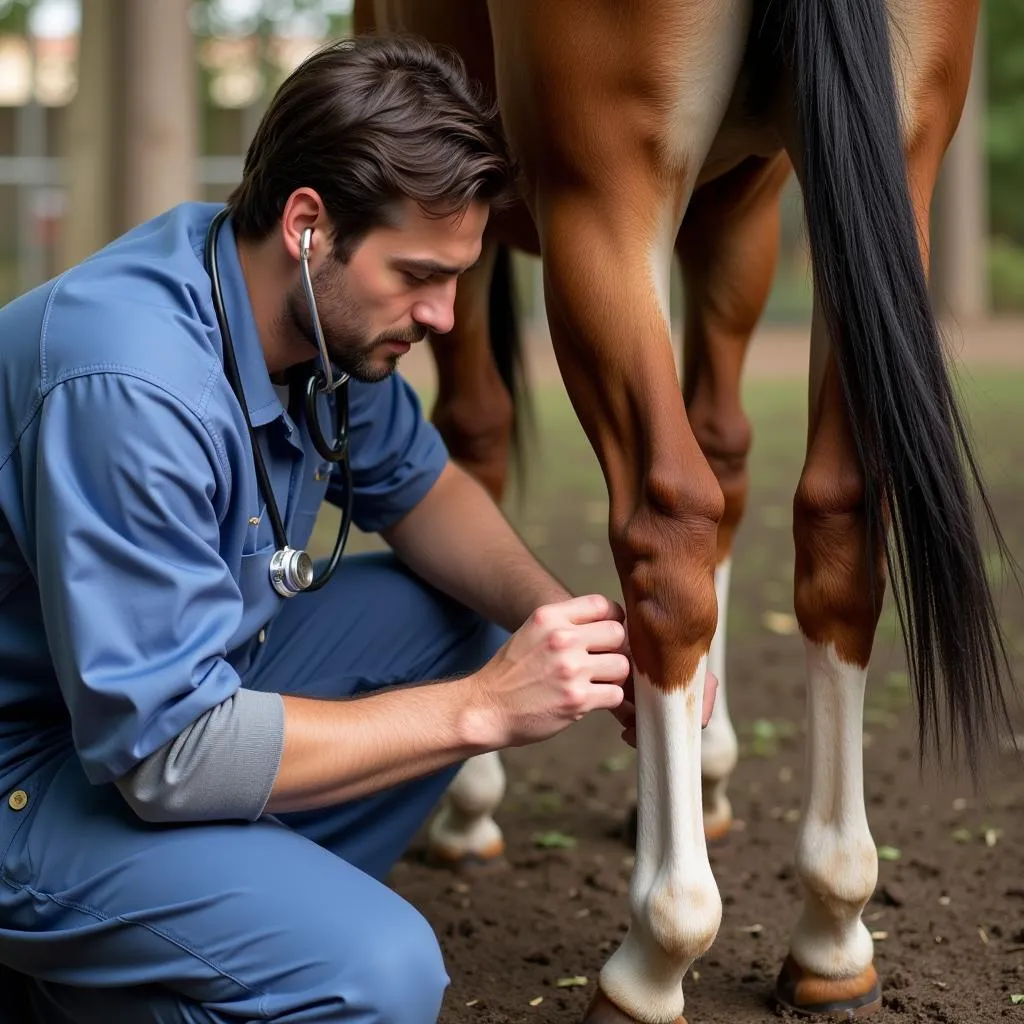Knowing how tall your horse will be is a common curiosity among horse owners, especially when watching a foal grow. While we can’t predict the exact height with absolute certainty, there are ways to estimate how tall your horse might be. Several factors contribute to a horse’s eventual height, including genetics, breed, nutrition, and overall health.
Unveiling the Mysteries of Horse Height: Genetics and Breed Standards
Genetics play a significant role in determining a horse’s height, just like in humans. A foal inherits genes from both its sire (father) and dam (mother), influencing its growth potential.
 Horse Height Genetics
Horse Height Genetics
Breed standards offer a general range for a horse’s mature height. For instance, a Shetland pony typically reaches a maximum height of 42 inches, while a Shire horse can tower over 70 inches.
Nutrition and Health: Key Players in Horse Growth
While genetics set the stage, nutrition and overall health directly impact how a horse reaches its full growth potential. A balanced diet rich in essential nutrients, including protein, vitamins, and minerals, is crucial for healthy bone and muscle development.
Just as important as nutrition is a horse’s overall health. Illnesses, parasites, and poor living conditions can all hinder growth, especially during a horse’s formative years.
The “How Tall Will My Horse Be Calculator”: A Helpful Guide
While not a crystal ball, several “How Tall Will My Horse Be Calculators” are available online. These calculators generally use factors like the horse’s age, current height, breed, and the height of its parents to provide an estimated range.
However, it’s important to remember that these calculators are just estimates. They provide a helpful starting point but shouldn’t be considered absolute predictors.
Beyond the Calculator: Other Methods for Predicting Height
Beyond online calculators, equine professionals often utilize a few other methods for estimating a horse’s height:
- Leg measurements: Measuring the length of a foal’s cannon bone (the long bone between the knee and fetlock) can offer insight into its growth potential.
- Growth plates: Veterinarians can examine a young horse’s growth plates (areas of developing cartilage at the end of long bones) to assess how much growth potential remains.
 Veterinarian Examining Horse for Growth
Veterinarian Examining Horse for Growth
“While online calculators can be helpful, I always recommend consulting with your veterinarian for a more accurate assessment of your horse’s growth potential,” advises Dr. Emily Carter, DVM, specializing in equine care. “They can consider factors specific to your horse, providing a more personalized prediction.”
Patience is Key: Embracing the Journey of Horse Growth
Watching your horse grow is an exciting journey. While you might be eager to know their final height, remember that horses grow at different rates. Some might experience growth spurts, while others mature more gradually.
Instead of focusing solely on the end result, enjoy each stage of your horse’s development. Provide them with the best possible care, nutrition, and a loving environment, and they’ll reach their full potential, whatever their height may be.